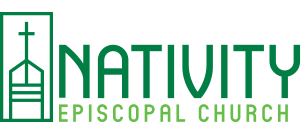Over the last few decades, Church theologians and others have been looking at statistics that point to the death of Christendom. Simply defined, this ‘death’ is marked by an end to the Christian majority in the population, and a diminishment of influence within the culture. Many demographers now rank the “nones”—those with no religious affiliation—to be a greater percentage of the population than those professing to be Christian or any other faith. This shift in affiliation within the population has also caused a paradigm shift within the culture—a movement from the Age of Christendom to the Secular Age.
Local theologian Andrew Root, Ph.D, Professor of Youth and Family Ministry at Luther Seminary, has authored two books, The Pastor in a Secular Age and Faith Formation in a Secular Age, both of which offer a compelling perspective on the rise of secularization and some helpful suggestions about how we might respond (worthy of reading, in my opinion).
The Rev. Daniel R. Heischman, D.D., Executive Director for the National Association of Episcopal Schools, approached the secularization of society from a different perspective. He focused his attention on how Chaplains in school settings, as well as those in hospitals, airports, and other places, have had a long history of inhabiting the secular world and being present for the moments in which people long for the sacred. He put it this way: “While parts of the church may be perceiving the secular world to be the ‘other,’ with the accompanying frustration over how to relate to that world, our chaplains are crossing boundaries, bridging the gap between the sacred and secular worlds.”
While I recognize that our cultural paradigm has shifted, personally, I simply cannot see the bifurcation of sacred and secular in our culture. I believe it sets up a false dichotomy: either things are secular—worldly, profane, not religious; or spiritual and sacred—holy, sacred, religious, spiritual.
Our Creator God will not be limited to human delineations. Rather, God continues to invite us to join with God in God’s mission of the Beloved Community.
The reality is, Christendom has been gone from Minnesota for a long time. The indigenous people of Minnesota had and have their own religious and spiritual traditions which supersede the first Christians here, and since then, many faith traditions, spiritual practices, and “nones” have influenced Minnesota and many other parts of the country.
In ECMN we have, in our own way, been digging deep into what we often refer to as the ‘changing culture—changing Church.’ For the last several years, we have invited our faith communities to move out into their neighborhoods to see what God is up to, to build relationships and partnerships with those communities. Fundamentally, we believe that God is active in our neighborhoods, and that God invites all of us to use our gifts to bring forth the Beloved Community.
Source: Bishop Brian Prior – Living Undivided
